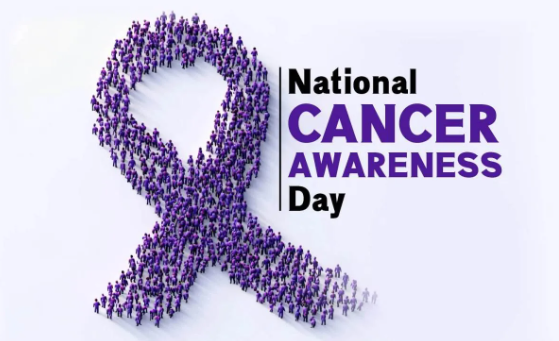SYLLABUS
GS-2: Issues relating to development and management of Social Sector/Services relating to Health, Education, Human Resources.
Context: India observes National Cancer Awareness Day on November 7th each year, which aims to raise awareness about the growing cancer burden in the country.
More on the News
- The National Cancer Awareness Day commemorates the birth anniversary of Marie Curie, the Nobel laureate whose research on radioactivity revolutionized cancer treatment through the development of radiotherapy.
- World Cancer Day is celebrated on February 4th every year to commemorate the signing of the Charter of Paris Against Cancer in 2000.
- National Cancer Awareness Day was first declared in 2014 by the Union Ministry of Health & Family Welfare to address India’s growing cancer burden.
- The day emphasises prevention, early detection and access to treatment for all, reinforcing that many cancers are avoidable and outcomes markedly improve with timely screening and intervention.
Cancer Burden
- Globally, according to the WHO, cancer accounted for over 10 million deaths in 2020.
- In India, there are roughly 20-25 lakh active cancer patients at any given time.
- As per a Globocan 2020 report, India that year had around 13.24 lakh new cancer cases (6.46 lakh new cases in men and 6.78 lakh in women) and 8.51 lakh deaths related to cancer.
- The three most common cancers in men were those of the lip and oral cavity (~15-16 %), lung (~8 %), and oesophagus/stomach region (~6-7 %).
- The three most common cancers in women were breast (~26 %), cervical cancer (~17-18 %) and ovarian cancer (~6.5-7 %).
Government Initiative to Tackle Cancer
- National Programme for Prevention and Control of Cancer, Diabetes, Cardiovascular Diseases and Stroke (NPCDCS): Launched in 2010 under the National Health Mission (NHM), it is India’s principal national programme addressing non-communicable diseases (NCDs), including cancer.
- National Cancer Grid (NCG): A network connecting over 300 cancer care centres across India, the NCG standardizes treatment protocols, integrates digital health, and facilitates research and training among leading institutions.
- Ayushman Bharat – PM-JAY: It provides free secondary and tertiary cancer treatment to eligible families, including chemotherapy, radiotherapy, and surgery, reducing out-of-pocket expenditure.
- Day Care Cancer Centres (DCCCs): The Union Budget 2025-26 announced the establishment of 200 DCCCs in district hospitals to enable outpatient chemotherapy and supportive therapy, especially for rural and underserved populations.
- QUAD Cancer Moonshot Initiative: It has been launched under the Quad framework (India, US, Japan, and Australia) to strengthen cooperation in cancer research, early detection, and equitable access to advanced therapies.

